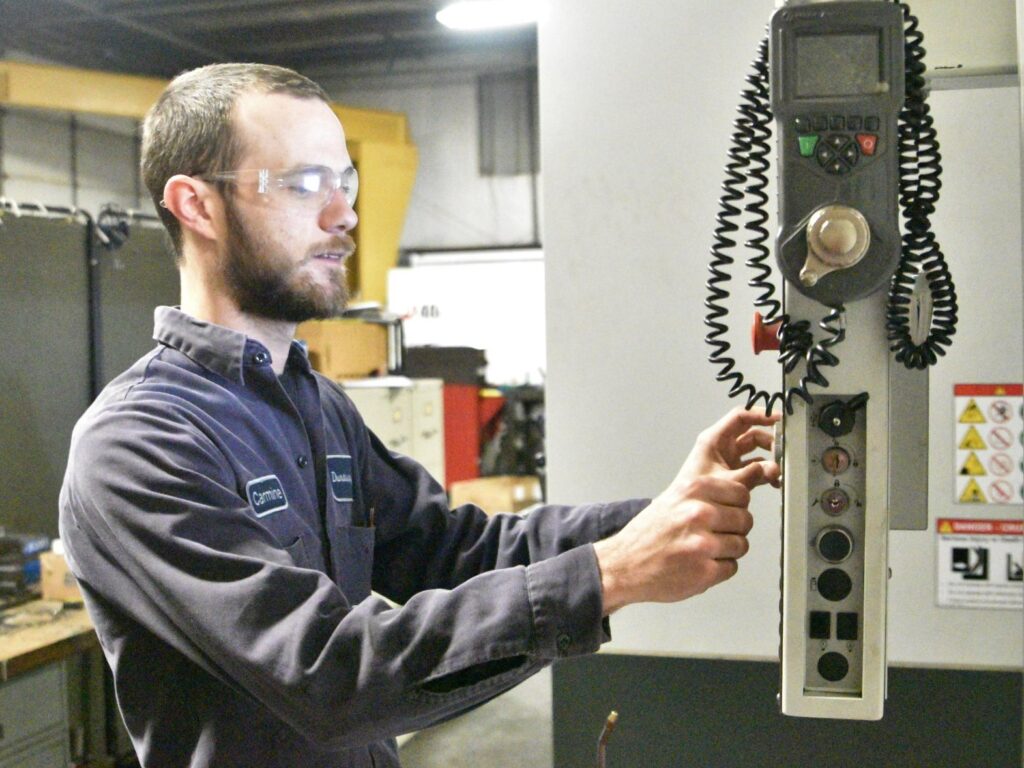When Carmine Zarlenga was planning out his life, becoming a CNC machinist was one way to reach his goals without having to relocate.
He could have his choice of where he would work in the Mahoning Valley while also being well-paid.
“I loved that there are lots of jobs locally,” Zarlenga said. “There’s always jobs for this industry. They’re readily available.”
He works at Dunaway Inc. in Canfield, using machining equipment to produce precision parts.

Although working with machinery, Zarlenga is able to apply critical thinking each day while still being hands-on.
“This is the perfect balance of working with your hands but also working with your mind,” he said, as he watched the machine create a part, which he then measured by hand.
To set his career in motion, Zarlenga went to the Mahoning County Career and Technical Center in Canfield for their adult machining program.
“Then I found a job and progressed from there.”
Prior to becoming a CNC machinist, Zarlenga was a diesel mechanic.
Looking at the figures
According to the U.S. Bureau of Labor and Statistics, the national hourly average of a CNC machining employee is $29 an hour, or $62,300 annually.
Locally, that figure is between $17 and $28 an hour, depending on the credentials earned by an employee.
To become a machinist, courses are offered at MCCTC, Columbiana County Career and Technical Center, Trumbull County Technical Center and Eastern Gateway Community College, where a certification program is offered.
Creating a balance
“You make decent money and make a decent career out of it,” Zarlenga said.
Cost of living in the Mahoning Valley is considerably lower than other parts of the country, making his income stretch further, he noted.
Building off that, the schedule is great, too.
For the most part, CNC machinists know their schedule, which provides a steady life-work balance, Zarlenga said.
“We have a set schedule we work” at Dunaway, he said
For high school students unsure what to do after graduation or adults looking for a new career path, Zarlenga said he would urge them to “greatly consider” manufacturing.
“There are jobs everywhere for it. It’s a good way without a college degree to make a very good living,” Zarlenga said.

